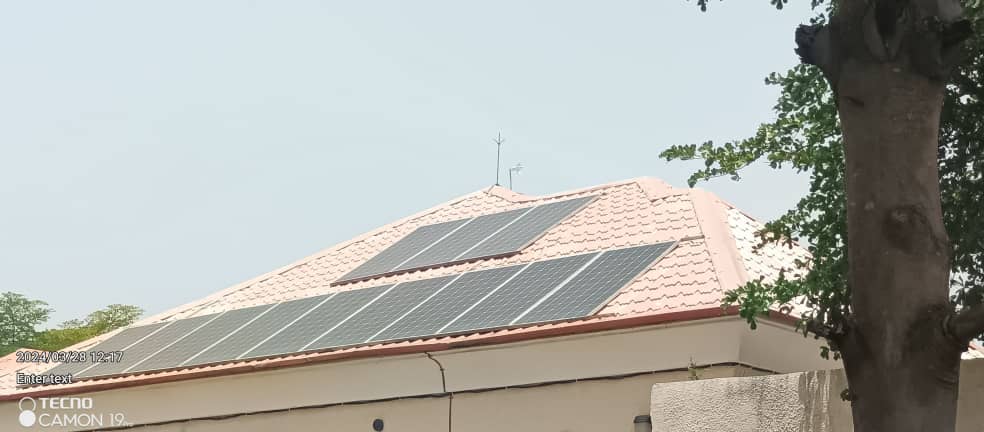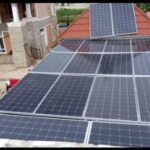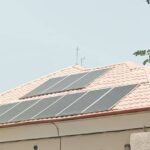In a country like Nigeria, where the power supply is often unreliable, the idea of generating your own electricity may seem like a luxury. However, with persistent power outages, rising electricity costs, and growing environmental concerns, solar energy is quickly becoming a smart and necessary alternative. In this post, we’ll explore why going solar is not just an option, but a solution to many of Nigeria’s energy challenges.
The Energy Crisis in Nigeria: A Growing Concern
Nigeria, despite being Africa’s largest oil producer, struggles with consistent power supply. According to reports, Nigeria’s national grid generates only a fraction of the electricity needed to meet the demands of its over 200 million citizens. With power cuts that can last hours (or even days), millions of households and businesses are forced to rely on expensive and often unreliable diesel generators, which bring their own set of problems.
Here are some of the challenges Nigerians face with the current energy situation:
Frequent Power Outages: Power cuts are a daily reality for most Nigerians. Whether you’re a business owner or a homeowner, you can’t rely on the national grid for continuous electricity.
High Cost of Fuels: The cost of running diesel or petrol generators is on the rise, and it can be financially draining to keep a generator running 24/7 to meet energy needs.
Pollution and Noise: Diesel generators not only contribute to air pollution but also create constant noise pollution, making living and working conditions less than ideal.
Given these issues, it’s clear that Nigeria needs a more sustainable and reliable source of energy. That’s where solar power comes in.
Why You Need to Go Solar in Nigeria
- Reliable and Consistent Power Supply
One of the most obvious benefits of solar energy in Nigeria is its ability to provide reliable power, especially in areas with frequent grid outages. Unlike the grid, which can be unpredictable, solar power harnesses the energy of the sun to generate electricity, and this energy is available daily as long as there’s sunlight.
With solar, you’re not at the mercy of power fluctuations or long blackouts. Solar systems can be used to power your home or business 24/7 if you have a battery storage system.
- Cost Savings in the Long Run
Although the initial investment for installing a solar energy system may seem high, the long-term savings are significant. Nigeria’s rising electricity tariffs make solar power even more attractive, as it can drastically reduce monthly energy bills.
Furthermore, the cost of fuel for running diesel or petrol generators is steadily increasing, while solar energy systems only require a one-time installation cost and minimal maintenance after that. With solar panels typically lasting 25 years or more, the savings can add up over time, making solar a cost-effective option in the long run.
- Reduce Your Dependence on Expensive Generators
Many Nigerians rely on expensive diesel or petrol generators to power their homes and businesses. But fuel costs are unpredictable, and they often make using generators an unsustainable option. By switching to solar, you can break free from the never-ending cycle of buying fuel, maintaining your generator, and dealing with the constant noise and emissions.
Solar panels and batteries, on the other hand, require minimal maintenance and have no fuel costs. Once installed, they operate efficiently without the need for constant refueling.
- Environmentally Friendly Energy Source
Nigeria, like the rest of the world, is facing the negative effects of climate change. From erratic weather patterns to desertification, the environmental challenges are growing. By going solar, you’re contributing to reducing the carbon footprint, as solar energy is a clean, renewable source of power.
Switching to solar helps reduce reliance on fossil fuels and contributes to a cleaner, healthier environment. With Nigeria’s energy grid still reliant on gas and oil-fired power plants, solar energy can help reduce pollution and combat the effects of climate change.
- Energy Independence
Nigeria is often vulnerable to global energy price fluctuations, which can affect fuel costs and the price of electricity. Solar energy provides the opportunity for energy independence. By investing in a solar system, you can generate your own power, freeing yourself from the uncertainties of fuel shortages, price hikes, or grid failures.
In areas where the national grid is weak or non-existent, solar energy offers a lifeline for rural communities and businesses to thrive without depending on external power sources.
- Government Incentives and Rebates
To encourage the adoption of renewable energy, the Nigerian government and various state agencies have started offering incentives, rebates, and financing options for solar installations. The Nigerian Rural Electrification Agency (REA) has been rolling out solar-powered solutions to rural and underserved communities, and programs like the Solar Power Naija initiative are making solar energy more accessible to the masses.
This growing support makes going solar even more affordable and practical, and it’s expected to grow in the coming years.
- Increase Property Value
Installing solar energy systems in your home or business can increase its market value. With the growing awareness of the benefits of renewable energy, many buyers and tenants prefer properties with solar energy installations, knowing they’ll save on utility bills and avoid the hassle of dealing with erratic power supply.
Challenges to Consider
While solar energy offers numerous benefits, there are some challenges to consider:
Upfront Cost: The initial cost of installing solar panels and batteries can be high. However, with the government’s push to make solar energy more affordable and financing options becoming available, this barrier is gradually being reduced.
Maintenance: Although solar panels require minimal maintenance, they still need periodic cleaning and servicing to ensure optimal performance.
Energy Storage: For areas with inconsistent sunlight or people who want to use solar energy at night, a good battery storage system is necessary. These batteries, while improving in affordability, can still represent a significant part of the cost.
Conclusion: Solar Is the Future for Nigeria
The energy crisis in Nigeria is real, and the need for alternative, sustainable power sources is becoming urgent. Solar energy offers an effective solution that addresses many of the challenges Nigerians face with unreliable electricity, high fuel costs, and environmental concerns. By going solar, you’re not only ensuring a steady power supply but also saving money and contributing to a cleaner planet.
At D Legendary Energy Concept, we believe solar energy is the key to a brighter, more sustainable future for Nigeria. If you’re ready to make the switch, our expert team is here to guide you through every step of the process—from consultation to installation. Let’s work together to harness the power of the sun and secure a reliable energy future for Nigeria.





Leave a comment